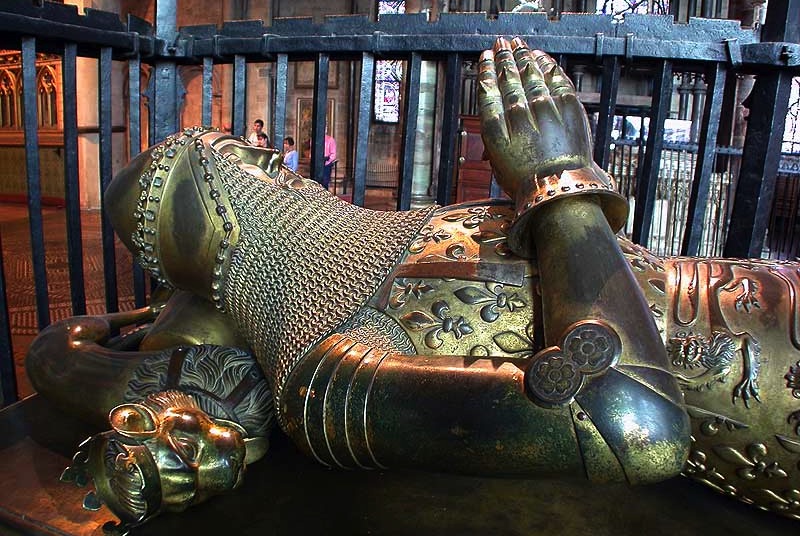Home Frank’s Blog Piano & The Crypt: Transforming the Energy of Space
Piano & The Crypt: Transforming the Energy of Space
Frank Fitzpatrick 07/30/2014

|
No time to read? Pick your language & press PLAY
Getting your Trinity Audio player ready...
|
As I entered the towering halls of the renowned Canterbury Cathedral, my heart became surprisingly heavy. While the architecture was nothing short of breathtaking, and the rich history (founded 597) and mythical stories had me brimming with curiosity, the energy of the space felt quite unsettling.
Walking past the elaborate tombs and artifacts that adorned the Cathedral’s chambers, the feelings intensified. The tombs housed the remains of former rulers of the British Empire, famous knights, and military leaders such as Edward the “Black Prince” of Wales, a brutal burn and pillage commander from the Hundred Years’ War. The further I explored, the more the darker face of history began to emerge: centuries of imperialist rulers who amassed wealth, assassinated opposition and declared wars in the name of the God and Country.

I had entered the Cathedral naively expecting a kind of divine sanctuary that would inspire me, bring peace of mind, and help me realign with my own spiritual nature and sense of purpose. The word spiritual comes from the Latin root, spiritus, which means, “to breathe life into.” In that moment, however, the great halls of one of the world’s most famous churches felt anything but spiritual.
I had come to Canterbury as part of my quest to help people better understand the power and benefits of music so we can use it to create a more intelligent and compassionate society. I was there to address an international delegation on the value of music and creativity for the advancement of education and the wellbeing of our youth. The only music I could hear, however, was the dissonant clusters of the organist preparing for the evening service. It sounded more reminiscent of a horror film score than an uplifting hymn.
Feeling overly sensitive to, and uneasy from, the energy and sound around me, I made my way to the courtyard for some fresh air. On my way out, I ran into a colleague who insisted that I visit the Crypt located in the basement of the Cathedral. At first, this sounded like a horrible idea, but something called me back in.

The ancient stone Crypt that occupied the underbelly of the church was what you might expect – dark, stark, lifeless and chilling. Then appeared the first piece of my epiphany. Off to the left, tucked into a dark corner, and obscured by a heavy cloth and stack of chairs, was a grand piano.
With no security guards in the crypt (I guess there was nothing to steal), the bleeding sound of organ masking any noise, and only a handful of tourists wandering about, I decided to follow my somewhat defiant instinct. I moved a half dozen of the chairs aside, uncovered the piano, and sat down to play.
Within the first few notes, the energy of the Crypt was transformed. There was lightness and a sense of calm that had even become apparent to some of the passing tourists who took a seat nearby. Each musical phrase permeated the cold dark space with warmth and light. The notes floated across the empty cavern, echoed off the walls and carried my feelings of sorrow and anxiety away with them as they dissipated into silence.
Having completed my mission and escaped the potential wrath of security, I covered the piano back up and made my exit through an adjacent tunnel. It opened up to a beautiful garden, with the magnificent 12th century King’s College in the background. The sun broke through the clouds for the first time since I had arrived, and I took the opportunity to meditate in the garden and to reflect on the magic of what had just transpired.
My next entrance into the Cathedral was the following night. The Whitstable Choral Society and resident chamber orchestra performed Handel’s oratorio Israel in Egypt. To add to the impeccable performance of an awe-inspiring piece of music, the acoustics were amazing. As I moved about, my body resonated with the voices of the chorus. When I gazed upward to the arched celling nearly five stories above me, I had the second part of my epiphany. It was as if I could see the notes reflecting off those towering arches and becoming lights and colors – as if the angels had finally awoken from their deep sleep so they could fill the halls with joy. The music had transformed that once dark and foreboding space in the place of awe, wonder and reverence I had imagined before I set foot in the Cathedral the previous day.

While I believe in the energy of space, the greatest transformation during my visits to the Cathedral may have been in my personal energy. By reprogramming my emotional and physical state, as well as my perceptions, the music transformed my relationship to the space, just as it has for millions of visitors across the centuries.
Playing piano in the crypt and hearing that choir sing opened my heart, realigned my nervous system and engaged my imagination in ways that I was simply not able to access prior to adding music to the experience.
As the concert came to a close, I walked out on the ancient grounds of the adjoining campus, absorbing the full moon above and the beautiful voices resonating within. I finally understood the meaning of what had transpired in those halls, the purpose of me being at the forum, and the deeper intention of my soul’s mission on earth.
I was filled with joy and gratitude for all that music had given the world, and me, to make life beyond bearable – to inspire, heal and awaken us to a whole new dimension of ourselves and our relationship with the world around us.
View this article on Huffington Post.
I’m here to help YOU create a better world, inside and out.
Contact Me© 2025 Frank Fitzpatrick Website by AllHereIndia












